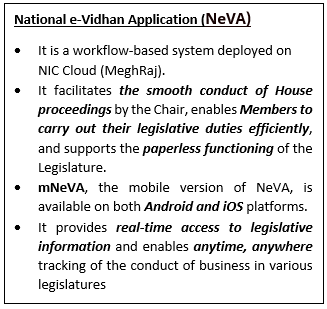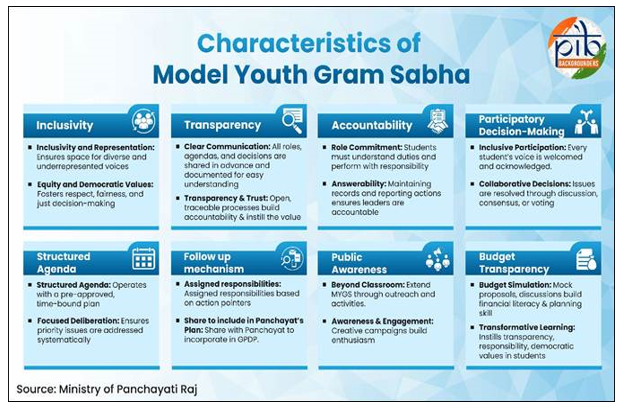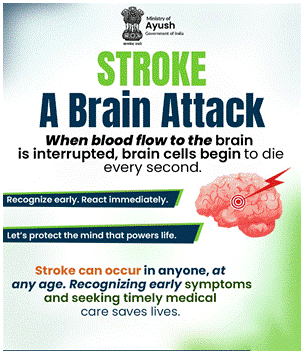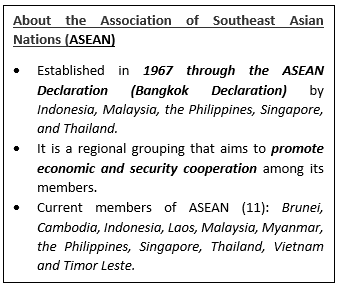3rd National Conference on NeVA 2025
Context: Recently, the Ministry of Parliamentary Affairs concluded the 3rd National Conference on the National e-Vidhan Application (NeVA) in New Delhi to accelerate the shift toward digital and paperless legislatures.
More on the News

- The conference reaffirmed the commitment to “One Nation, One Application” for paperless legislative functioning.
- Delegates unanimously adopted the “New Delhi Resolution on NeVA 2025” to strengthen cooperative federalism in digital governance.
- 28 Legislative Houses have signed MoUs with the Ministry of Parliamentary Affairs.
- 20 Houses are already live on NeVA, marking steady progress toward digital legislatures across the nation.
- Certificates of Honour were presented to legislators already live on NeVA, while Certificates of Appreciation were given to all participants.
Key Commitments under the New Delhi Resolution on NeVA 2025
- Constitution of a Committee of Secretaries to oversee implementation.
- Expedited full-scale adoption of NeVA across all State Legislatures.
- Strengthening capacity building for digital legislative operations.
- Adoption of AI and emerging technologies to enhance legislative efficiency
- Digitisation and uploading of legacy records for complete digital archives.
- Exploring the creation of a National Legislative Digital Index for unified access to legislative documents.
Model Youth Gram Sabha (MYGS) Initiative
Context: The Ministry of Panchayati Raj, in collaboration with the Ministry of Education and the Ministry of Tribal Affairs, has launched the Model Youth Gram Sabha (MYGS) to familiarise students with grassroots democracy through simulated Gram Sabha sessions in schools across India.
About the Model Youth Gram Sabha (MYGS)
• The MYGS aims to give students practical exposure to Panchayati Raj Institutions (PRIs) by engaging them in mock Gram Sabha and Gram Panchayat meetings.
• These activities are designed to nurture civic awareness, participatory values, and leadership qualities among young learners.
• The initiative is being implemented in
- Jawahar Navodaya Vidyalayas (JNVs): Residential schools established under the National Policy on Education (1986) to provide quality education to talented rural children.
- Eklavya Model Residential Schools (EMRSs): Institutions set up to offer quality education at the upper primary, secondary, and senior secondary levels to Scheduled Tribe (ST) students in remote areas.
- State Government Schools.
• One-time financial assistance of ₹20,000 is being provided to each participating school for organising mock sessions.
• A training module and digital portal have been developed to support implementation and teacher capacity building.
• Regional and national competitions are also being held to recognise the best-performing student teams.
Key objectives of MYGS

- Educate Students about the three-tier Panchayati Raj System: Introduce students to the three-tier Panchayati Raj framework established through the 73rd Constitutional Amendment.
- Encourage Participation: Motivate students to engage in Gram Sabhas and local governance processes.
- Develop Leadership Skills: Foster a sense of responsibility and leadership among youth towards strengthening Panchayati Raj Institutions (PRIs).
- Promote Understanding of Local Issues: Provide a platform for students to discuss and analyze real-life governance challenges at the grassroots level
World Stroke Day 2025
Context: World Stroke Day is observed annually on 29th October to raise global awareness about stroke prevention, early recognition, and timely treatment.
More on the News
- The theme for 2025, “Act Fast: Every minute counts”, underscores the urgency of identifying stroke symptoms early and seeking prompt medical attention to prevent death and long-term disability.
- World Stroke Day was first established on 29th October 2004, during the World Stroke Congress in Vancouver, Canada, and was officially proclaimed for public awareness in 2006.
About Stroke

- Stroke is a medical condition that occurs when the blood supply to part of the brain is blocked (ischemic stroke) or when a blood vessel ruptures (hemorrhagic stroke), leading to the death of brain cells.
- Stroke is the fifth leading cause of death in the United States and a leading cause of long-term disability worldwide.
- Globally, stroke is the second leading cause of death and the third leading cause of disability.
- In India, around 18 lakh people suffer stroke every year, and the country has witnessed over a 100% increase in stroke incidents in recent decades.
- The average incidence rate in India is 145 per one lakh population, and it is estimated that three people in India experience a stroke every minute.
12th ASEAN Defence Ministers’ Meeting – Plus (ADMM-Plus)
Context: India and the United States signed a 10-year Framework for the US-India Major Defence Partnership on the sidelines of the 12th ADMM-Plus in Kuala Lumpur, reaffirming their shared commitment to defence cooperation and a free, open Indo-Pacific.
More on the News

- The 12th ADMM-Plus aims to strengthen defence and security cooperation among ASEAN member states and partner countries, supporting India’s Act East Policy.
- India’s Defence Minister met the US Secretary of War during the meeting to discuss ongoing defence cooperation, technology collaboration, and shared geopolitical challenges.
- Both sides signed a 10-year framework to guide future cooperation across all pillars of the bilateral defence relationship.
ASEAN Defence Ministers’ Meeting Plus (ADMM-Plus)
- ADMM is ASEAN’s highest defence consultative and cooperative mechanism.
- ADMM-Plus is a platform for ASEAN member states and its eight Dialogue Partners (India, US, China, Russia, Japan, South Korea, Australia and New Zealand) to strengthen regional security and defence collaboration.
- India became the Dialogue Partner of ASEAN in 1992, and the inaugural ADMM-Plus was convened in Hanoi, Vietnam in 2010.
- Since 2017, ADMM-Plus Ministers have met annually to advance multilateral defence cooperation
- Under the current cycle (2024–2027), India and Malaysia are co-chairs of the Experts’ Working Group on Counter-Terrorism.
Indo-Pacific Regional Dialogue 2025
Context: Recently, the Indian Navy hosted its annual apex-level international maritime strategy conference, Indo-Pacific Regional Dialogue (IPRD) 2025, in New Delhi from 28 to 30 October 2025.
More on the News
- The 2025 edition was held under the theme ‘Promoting Holistic Maritime Security and Growth: Regional Capacity-Building and Capability-Enhancement’.
- The three-day event brought together over 30 countries, including global experts, senior officers from Indian Armed Forces, government representatives, scholars and strategic thinkers.
- The National Maritime Foundation (NMF) served as the knowledge partner for the conference.
- A publication titled ‘Maritime Perspectives: The Blue Economy and Resilience’ was released by NMF, underscoring the importance of sustainable maritime growth.
- Discussion emphasised the need for joint impact assessments and a pan-regional action plan for climate resilience, alongside enhanced cooperation in protecting critical maritime infrastructure.
- First held in 2018, the IPRD continues to serve as a premier platform for dialogue on maritime security and cooperation in the Indo-Pacific region.

